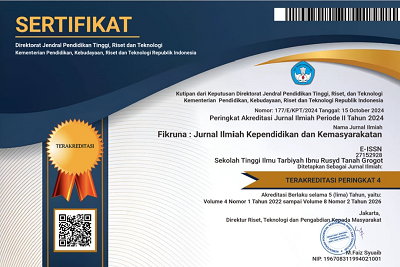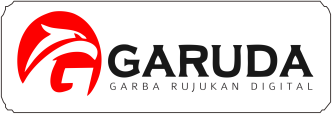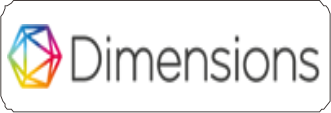TEACHING ENGLISH IN THE DIGITAL ERA
Abstract
The global use of technology might have influenced all of education institutions to follow the current trend of the technological usage. The use of information and communication technology or ICT become a key role in improving education.The study aimed to determine the digital tools utilized by the teachers and how the English teachers perceived teaching English in the digital era, how English teachers cope with the technological innovations and the way they look at the future of English teaching and learning with advent of digital learning. The study employed the qualitative method with interview as the instruments in gathering data among the 10 English teachers at USANT, Iriga City, Philippines.
Results show that the respondents or key informants the most widely used are mobile phone, laptop, tablets, computer, e-mail, and Google Translator, while the least widely used are Grammarly, MOOC and Kahoot!. Google Classroom, Edmodo, digital boards, and Quizlet. Moreover, English teachers cope with technological innovations in three ways: first, is by learning through self- discovery; second, by attending trainings and seminars related to technology and digital learning and third, by seeking help from peers.
This research concluded that the English teachers use digital tools for English language teaching as supplemental aids; that technology cannot substitute an English teacher; English teachers cope with the technological innovations gradually be learning by themselves, with others and by attending seminars; the English teachers are responsive to the changes in technology.
References
AsriSiti Fatimah and Santiana. 2017. Teaching In 21st Century: Students-Teachers� Perceptions of Technology Use in The Classroom.Journal of Linguistic and English Teaching, Vol. 2, No. 2.
AyuIstiana Sari, NunukSuryani, DewiRochsantiningsih and Suharno. 2017. Teachers� Perceptions Towards Digital-Based Teaching Material.Advances in Social Science, Education and Humanities Research (ASSEHR), volume 158.
Cohen L, Manion L & Morrison k. 2007. Research Methods in Education.NY: Routledge.
Congcong Wang & Lisa Winstead. (2016). Handbook of Research on Foreign Language Education in the Digital Age. PA: IGI Global.
DidiSuherdi. 2012. Towards The 21stCentury English Teacher Education: An Indonesian Perspective.CELTICS Press.
GulcinNagehanSarica&NadireCavus. 2009. New Trends in 21stCentury English Learning.Procedia Social and Behavioral Sciences 1 439-445.
Hadiyanto, AmirulMukminin, Makmur, MarzulHidayat and Failasofah. 2013. Teaching in a Digital Era: English Lecturers� Readiness toward the Internet Use in Teaching and Learning at Selected Higher Education Institutions in Indonesia.Asia-Pacific Collaborative Education Journal. Vol. 9, No. 2, pp. 113-124.
John W. Creswell. 2015. Research Design Qualitative, Quantitative, and Mixed Method Approaches. Third Edition. SAGE Publications. California.
Manisha Sharma. 2017. Teacher in a Digital Era.Global Journal of Computer Science and Technology, Vol. 17 Issue 3 Version 1.0.
Muhammad O. Yusuf. 2005. Information and communication education: Analyzing the Nigerian national policy for information Technology.International Education Journal Vol. 6 No. (3), Pp; 316-321.
RaksamonYordming. 2017. Teachers� Perspective towards Digital Teaching Tools in Thai EFL Classrooms.International Journal of Languages, Literature and Linguistics, Vol. 3, No. 2, June 2017.
RobieFanreza. 2018. The Quality of Teachers in Digital Era.AtlantisPress: Advances in Social Science, Education and Humanities Research, Vol. 231.
Robin H. Kay & Sharon Lauricella. 2011. Exploring the Benefits and Challenges of Using Laptop Computers in Higher Education Classrooms: A Formative Analysis.CJTL RCAT.
Servet�elik&K�braAyt?n. 2014. Teachers� Views on Digital Educational Tools in English Language Learning: Benefits and Challenges in the Turkish Context. The Electronic Journal for English as a Second Language, Vol. 18, No. 2.
Shona Whyte. 2017. Digital tools for Interactive Teaching in Languages with Technology.ITILT mini-guide.
SiminGhavifekr, ThanushaKunjappan, LogeswaryRamasamy&Annreetha Anthony. 2016. Teaching and Learning with ICT Tools: Issues and Challenges from Teachers� Perceptions.Malaysian Online Journal of Educational Technology Volume 4, Issue 2.
Sophia Fithri Al-Muhawwarah. 2014. Teachers� Perceptions on the Use of ICT in Indonesian EFL Learning Context.English Review: Journal of English Education, 3(1), 70-80.
T.S. Safitry, T. Mantoro, M.A. Ayu, I. Mayumi, R. Dewanti and S. Azmeela. 2015. Teachers� Perspectives and Practices in Applying Technology to Enhance Learning in the Classroom.iJET-Vol. 10, Issue 3.
Copyright (c) 2021 FIKRUNA

This work is licensed under a Creative Commons Attribution-NonCommercial 4.0 International License.



.png)












